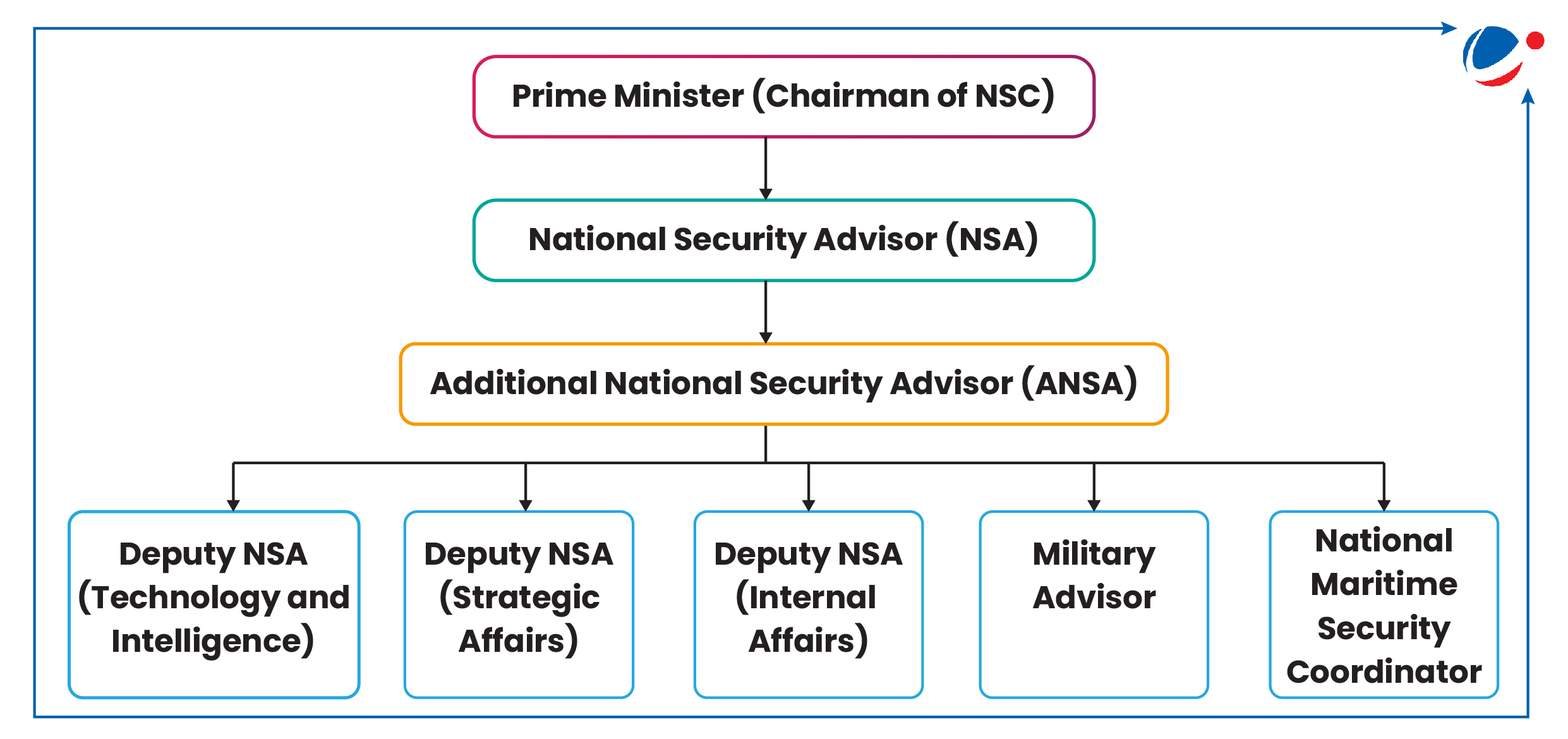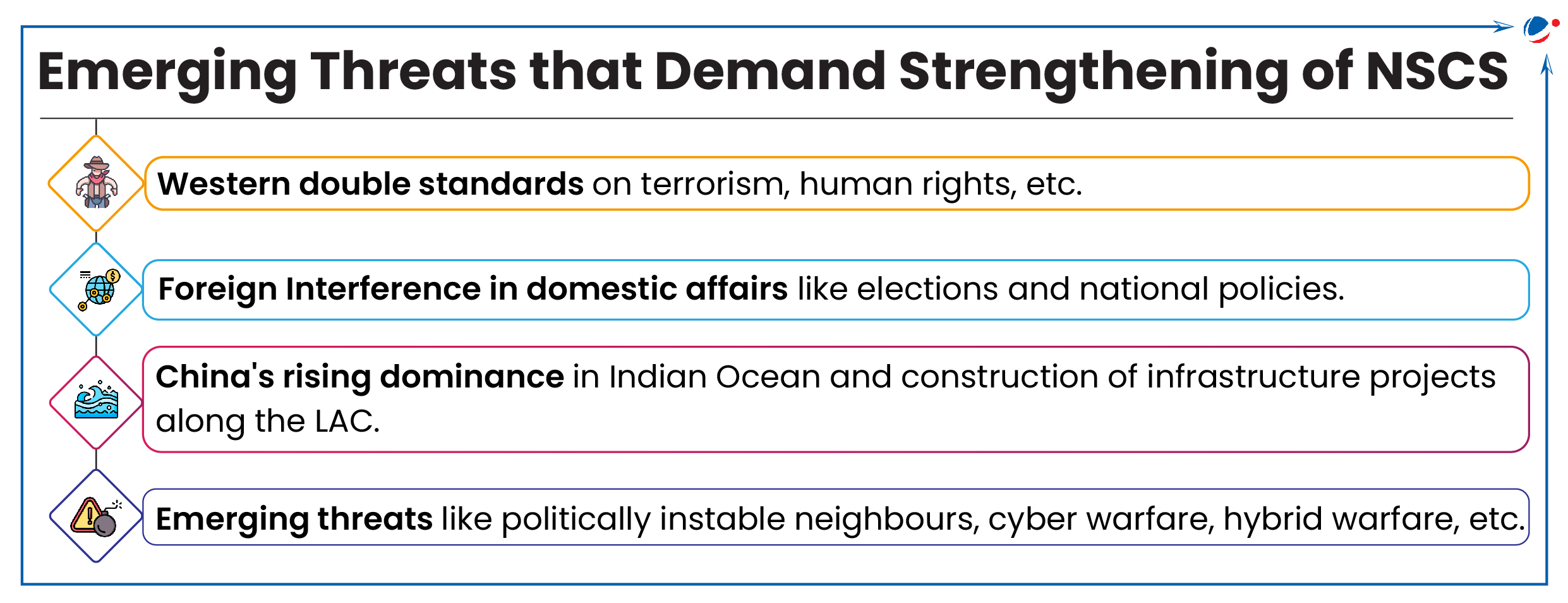Why in the news?
Recently, the government has appointed the Additional National Security Advisor (NSA) to the National Security Council Secretariat (NSCS).
About National Security Council Secretariat (NSCS)
- NSCS created in the late 1990s acts as the secretariat for the National Security Council or NSC (refer the box in the end).
- It is the apex advisory body on all internal and external security-related matters and headed by the National Security Advisor (NSA) the Secretary of the NSC.
- It aims to provide the strategy, direction and long-term vision so that every ministry concerned with national security may be adequately prepared to address all possible threats.
- The post of Additional NSA had always existed but remained vacant until now.
- The appointment of ANSA is expected to streamline and strengthen the functioning of NSCS.
- It is comprised of:
- Three deputy NSAs: Drawn from various services like the Indian Foreign Service, the Indian Police Service, the armed forces etc.
- Military Adviser: Tasked with coordinating with the Ministry of Defence and overseeing the induction of new technologies.
- National Maritime Security Coordinator (NMSC): It is in charge of liaising with coastal states coast Guard & other maritime security agencies.

- In 2019, the allocation of Business Rules was amended to cover NSA and NSCS within its purview.
- Thus, NSA holds the rank of Cabinet Minister and NSA and NSCS can generate Cabinet notes, access relevant Cabinet papers, and participate in any Inter-Ministerial consultation.
Significance of Appointing ANSA
- Niche Role for NSA: The ANSA will act as a key link between the NSA and other members of NSCS.
- The NSA can now concentrate more effectively on overseeing key advisory bodies of NSC including the National Security Advisory Board (NSAB) and Strategic Policy Group (SPG).
- Ensuring continuity: The possibility of elevating the ANSA to the role of NSA would ensure continuity in the organisation.
- Adapting to Emerging Needs: Continuous institutional reforms are necessary to respond to evolving geopolitical realities.

Way Ahead
- Strengthening the role of NSA: Establish objective selection criteria with clear qualifications, define specific duties, and ensure a transparent chain of command within the national security framework.
- Structural Changes in NSCS: Recruiting specialists with expertise in emerging security challenges and enhancing interdepartmental coordination to facilitate better anticipation of complex national security issues.
- Implementing a 'Whole-of-Nation' approach: Developing partnerships between citizens, government agencies, the private sector, and civil society is essential for information sharing and joint national security initiatives.
National Security Council (NSC)
|



